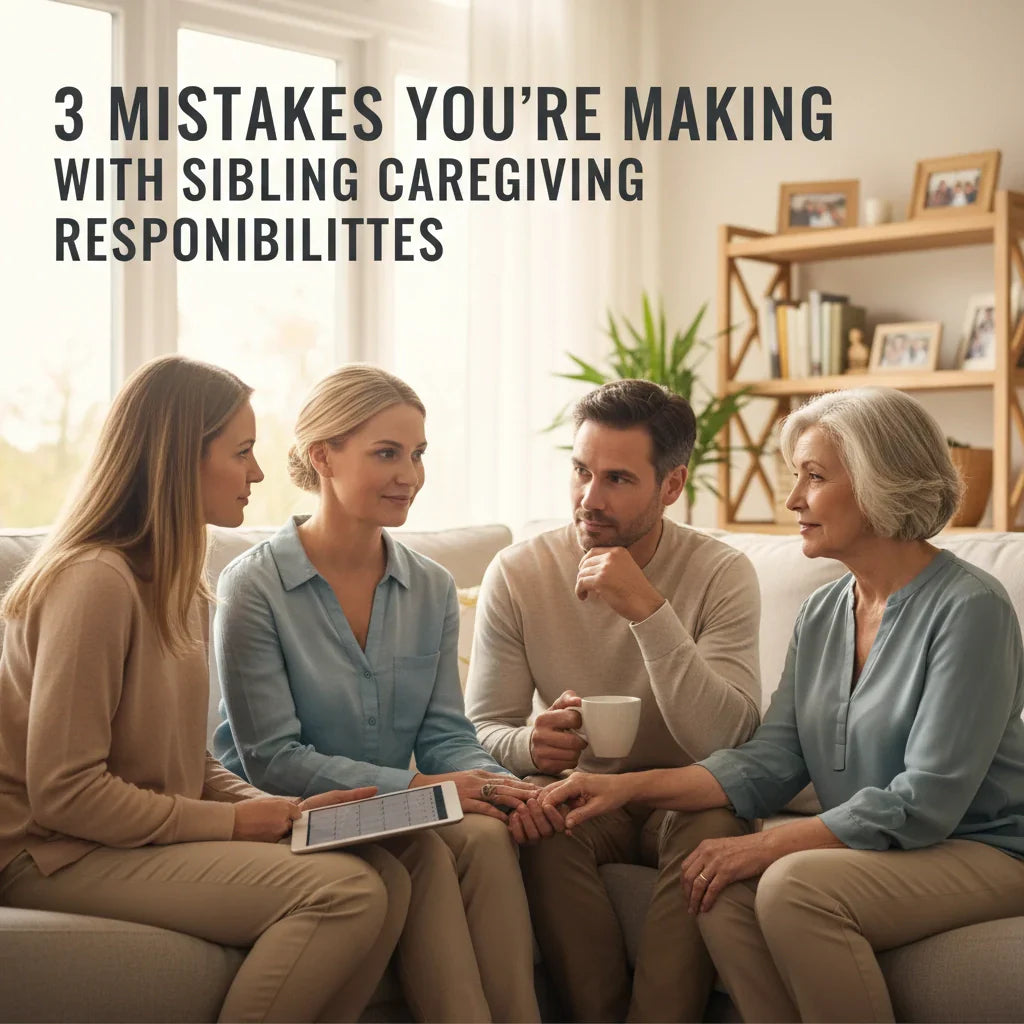When caring for aging parents, well-meaning siblings often fall into predictable traps that create unnecessary stress and conflict. Here are the three biggest mistakes families make, and how to avoid them.
Mistake #1: Assuming One Sibling Can Handle It All
The "designated caregiver" approach might seem logical, but it's a recipe for burnout. Research shows 90% of families pile most caregiving duties on just one person.
Why this backfires: • Primary caregivers face 24/7 responsibility, not just weekend visits • Resentment builds when others think they're "off the hook" • One person can't sustainably manage increasing care needs alone • Other siblings miss chances to contribute meaningfully
Gentle shift: Think of caregiving as a team sport where everyone has a position to play, even from a distance.

Mistake #2: Thinking "Fair" Must Mean "Equal"
Equal contributions sound nice in theory, but real life is messier. Different siblings have different circumstances, skills, and resources.
Common scenarios where equal doesn't work: • One sibling lives across the country • Another is dealing with their own health issues • Someone has young kids at home • Financial situations vary dramatically
Gentle shift: Focus on what each person can contribute rather than splitting everything 50/50. Maybe one handles finances while another provides hands-on care.
Mistake #3: Letting Resentment Simmer in Silence
Nothing destroys family relationships faster than unspoken frustration. The primary caregiver thinks "Where's the help?" while others believe they're doing enough.
Warning signs of brewing resentment: • Passive-aggressive comments during family gatherings • The primary caregiver stops asking for help • Siblings make excuses: "I'm too busy" or "I can't handle seeing Mom like this" • Important decisions get made without family input
Gentle shift: Schedule regular family check-ins to discuss what's working and what isn't. Address problems when they're small, not when they explode.

Moving Forward Together
Sibling caregiving doesn't have to destroy relationships. Start with one honest conversation about everyone's capacity and constraints. Remember: you're all trying to do right by your parents, even if it looks different for each person.
The key is flexibility, regular communication, and recognizing that caring for aging parents is a marathon requiring different strategies at different stages.
Ready to get organized? Our Eldercare Bundle includes templates for family meetings, care coordination worksheets, and communication tools designed specifically for sibling caregiving teams. Because when everyone knows their role, caring feels less overwhelming for everyone.
Disclaimer: These are general recommendations based on common family dynamics. Please consult with your financial advisor, estate planning attorney, and medical professionals for personalized guidance specific to your family's situation.

